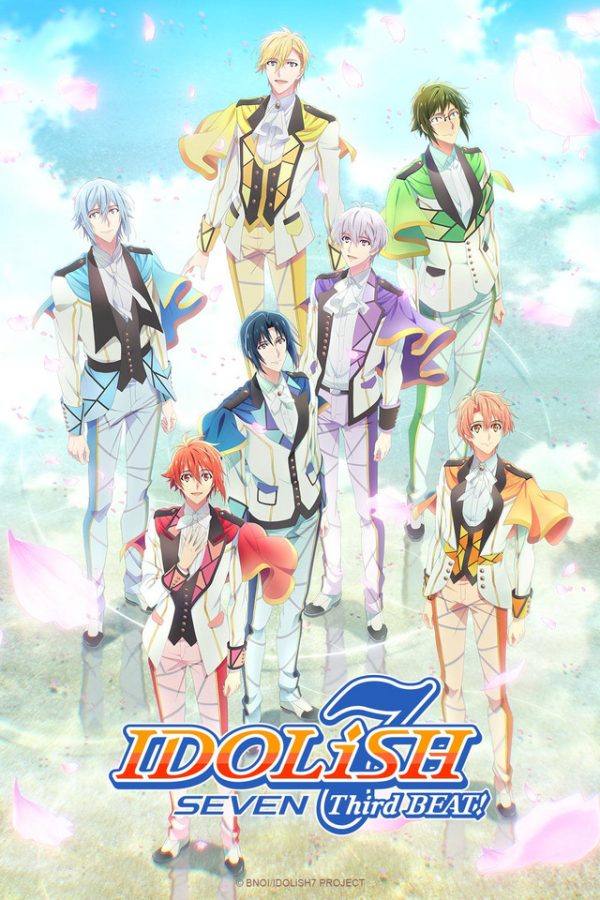The music industry is constantly changing as the years pass. Artists rise to fame only to fall into obscurity, while others have long lasting legacies. Pop is still reigning supreme, disco is dead, and virtual idols are getting a spotlight. Wait, virtual idols?
Virtual idols are singers who don’t exist in real life, but have a presence that could be compared to actors today. Many release new songs, have active social media accounts, “act” in plays, have their own rhythm game and apps, and have massive live concerts.
In East Asia, virtual idols aren’t a new thing, with the first one, Lynn Minmay, being created in 1982. The most famous and popular Hatsune Miku was created in 2007 and was a smash hit, even performing as Lady Gaga’s opening act in 2014. She would eventually release multiple rhythm games including the popular “Hatsune Miku: Project DIVA” series. Another one of the most successful series was “Uta No Prince-Sama,” which jumpstarted the interest in virtual male idols.
“Uta No Prince-Sama” started off as a smaller project but has grown to become one of the most successful music franchises in Japan. Originally, it was a dating sim with rhythm game elements with all songs sung by the character’s voice actors. Now, it has 10 games, a tv show, audio dramas, live concerts, multiple songs making the top 5 on Billboard Japan, and over 60 songs available to buy from stores. Despite the sizable fanbase in the West, “Uta No Prince-Sama: Shining Live”, the series’ current mobile game, is one of the only ways to experience the franchise outside of Japan excluding exporting them.
“Uta No Prince-Sama: Shining Live” is a free rhythm game, a style of gaming where you do certain actions based on the rhythm of the song. While this style of gaming isn’t popular in the West, it is a massive part of the industry in Asia.
For these sections of the game, the rhythm gameplay never feels like something was just thrown out of nowhere, an issue in some rhythm minigames. Unlike its main series predecessors, it won’t cause carpal tunnel because of just how difficult it is.
Being a rhythm game, one of the most important aspects of it is the music, which is where they really put a lot of effort in. The game has two idol groups, ST☆RISH and QUARTET NIGHT, and despite both of them having music produced by the same group, Elements Garden, they have many different styles of music they use. The game does not have any of HE★VENS’ solo music, which is the franchise’s third and latest group.
「God’s S.T.A.R.」/QUARTETNIGHT ©UTA☆PRI-LS PROJECT ©KING RECORDS
QUARTET NIGHT and ST☆RISH use a wide variety of genres for their songs and the voice talent in the project only enhances the experience. Their songs constantly push to show how talented each singer is. The song “Double face” had singer Camus, voiced by Maeno Tomoki, switch between a soft and submissive voice to a dominating one every other lyric and it was performed live without any slip ups.
Another interesting thing is when they release a new song, it gets added into the game to play. The game currently has over 50 songs to master and enjoy listening to, using autoplay.
Unlike some of its peers, the game does not provide translations of the songs which cuts out a large part of the franchise. Each song helps to tell the story of each of their characters and their emotional journeys. Ai Mikaze’s “Winter Blossom” tells the story of a love lost due to death and remaining happy for time, which reflects his life and one of his main struggles in the main series.
“Uta No Prince-Sama: Shining Live” doesn’t persay a main story, but instead short stories that explore different aspects of the 11 main characters. Many of these characters struggle with very relatable things like anxiety, depression, and feeling alone, making these characters feel really human. While these are never a main focus of the story, they sometimes make brief appearances yet don’t define the characters.
The mobile title, however, cut out the romance aspects that were key parts of the series even in the other rhythm game spin offs, with the exception of “Uta No Prince Sama: Music 2” which opted to use a idol variety show format. The game instead frames it as little snippets into the lives of the idols but with the collectable cards in game, players can experience a charming scene where the featured idol interacts with you as friends or romantic partners.
Unlocking these cards is done by earning points and using those points to get a random card with an assigned rate as to how often you get it. The drop rates for the better cards require a lot of saving, and in some cases math, to figure out if you will receive the card you want. While it can be frustrating, it’s drop rates are better than many of its peers and is a matter of knowing when to invest.
An interesting feature of the game is the ability to set your favorite character to the game’s homescreen. There, they have voiced lines that change depending on the time of day. Sometimes it’s just nice to take a small break when you’re working and get some words of encouragement or small reminders from your favorite fictional characters.
While there are some aspects of the game where paying money makes it easier, it isn’t needed to win the gameplay sections, avoiding the pay to win trend in mobile games.
The world of virtual singers has been booming and while “Uta No Prince-Sama” is not as popular in the West as others, it has a notable place in changing the industry by popularizing fictional male idols. With 10 years and even a perfume line behind it, “Uta No Prince-Sama” looks to have a long future ahead of it.



